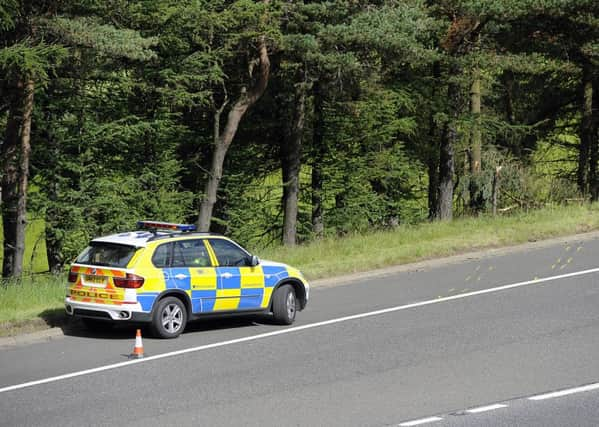Chris Marshall: M9 crash report will be ‘brutal’


Nearly four months on from the M9 crash which killed John Yuill and Lamara Bell, the police watchdog is preparing to publish its final report into Police Scotland’s call handling procedures.
The couple’s car was discovered on Wednesday 8 July - three days after the crashed vehicle was reported to police by a member of the public.
Advertisement
Hide AdAdvertisement
Hide AdThe report from HM Inspectorate of Constabulary in Scotland, which is expected to be published next week, will not look at the circumstances of the crash itself, but rather the situation in Police Scotland’s Contact, Command and Control (C3) division.
Immediately after the crash, Chief Constable Sir Stephen House said a call handler had failed to log the 101 call about the incident received on Sunday 5 July.
The Police Investigations and Review Commissioner (Pirc) is currently carrying out its own investigation into the crash, but we may never know if an earlier intervention from the police would have saved the life of Ms Bell, who spent three days trapped in the car alongside the body of Mr Yuill before officers arrived.
Speaking at the weekend, Calum Steele, of the Scottish Police Federation, said the HMICS report was likely to make “brutal reading” for the police.
An interim report published by HMICS in September said personnel in understaffed Aberdeen, Inverness and Dundee call centres were facing “unacceptably high” pressures.
The report said the practice of diverting overflow calls to the central belt was creating additional risk to the public.
In response to the report, justice secretary Michael Matheson handed Police Scotland £1.4 million to meet the key HMICS recommendation that the planned closure of call centres in the north be suspended and staff retained until a new area control-room in Dundee is fully operational.
But despite the injection of cash, the Scottish Police Authority last week heard evidence from Police Scotland that the system continues to be under strain.
Advertisement
Hide AdAdvertisement
Hide AdFigures published in a report submitted to the SPA shows callers to the 101 non-emergency number are waiting over five minutes to have their calls answered by the Edinburgh control room and up to two minutes for 999 emergency calls.
In Glasgow, the longest wait time for a 101 caller in August was around four minutes, while the comparable figure for 999 was two minutes forty seconds.
Worryingly, given the HMICS’ concerns about control rooms in the north of the country, comparable data is not available for Aberdeen, Dundee and Inverness.
Police Scotland did admit, however, that the performance of its control rooms in the north was not meeting that of Edinburgh and Glasgow.
The difficulties currently being faced by Police Scotland’s control rooms were not unforseeable.
For months before the M9 crash, the media and opposition MSPs warned the Scottish Government of problems at the Bilston Glen control room in Midlothian.
Sadly, it now seems it has taken the deaths of Ms Bell and Mr Yuill for the government to sit up and take notice.
Should the HMICS report prove to be as “brutal” as predicted, it should also provide a chastening experience for government ministers.
Advertisement
Hide AdAdvertisement
Hide AdFaced with having to make savings of £1.1 billion by 2026, Police Scotland needs to make cuts.
But when it comes to the programme of control rooms closures and the reduction of civilian staff to man them, it seems cuts were made too hard and too fast.